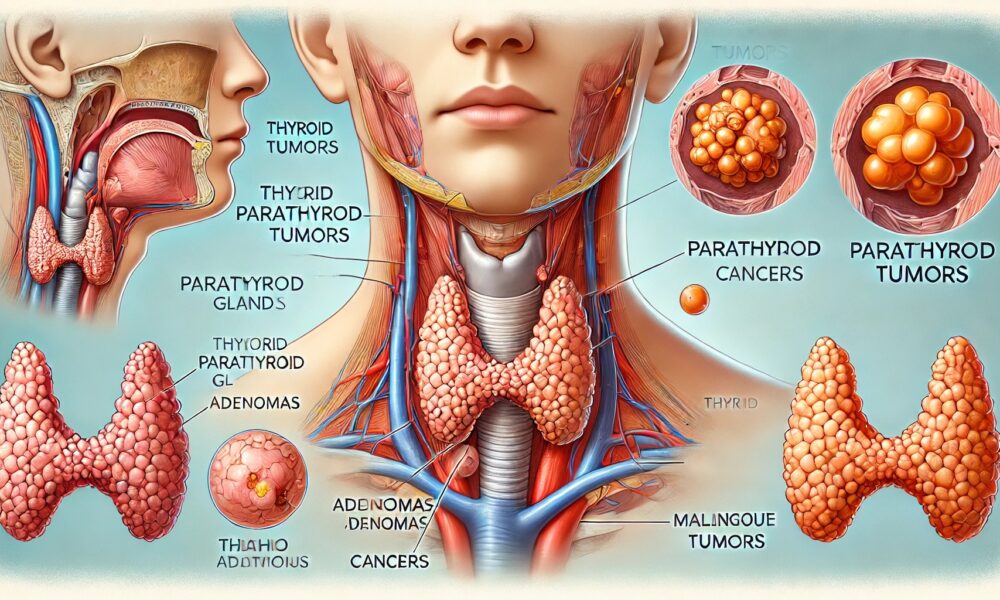Parathyroid glands are four small glands located in the neck, adjacent to and behind the thyroid gland. They play a crucial role in regulating the body’s calcium and phosphorus levels. Overactivity of these glands can lead to hyperparathyroidism, resulting in elevated calcium levels in the blood.
Parathyroid Adenomas
- The most common type of parathyroid tumor
- Typically noncancerous (benign) growths in one of the four parathyroid glands
- Cause primary hyperparathyroidism by overproducing parathyroid hormone (PTH), leading to high calcium levels (hypercalcemia)
- Usually occur in a single gland but can occasionally affect multiple glands


Parathyroid Cancer
- A rare but aggressive cancer of the parathyroid glands
- Can cause extreme hypercalcemia due to excessive PTH production
- May invade nearby tissues and spread (metastasize) to lymph nodes, lungs, or other organs
- More difficult to treat compared to benign adenomas
Other Rare Conditions
Atypical Parathyroid Tumors – These tumors show some features of malignancy but do not meet all the criteria for parathyroid carcinoma.
Parathyroid Hyperplasia – This is not a tumor but an enlargement of all four glands, sometimes confused with adenomas. It occurs in conditions like Multiple Endocrine Neoplasia (MEN) syndromes.

Diagnostic Approaches:
Accurate diagnosis of parathyroid disorders involves a combination of:
Blood Tests
Ultrasound
CT Scan
Symptoms of Parathyroid Disorders:
Treatment Options
The primary treatment for parathyroid tumors, whether benign or malignant, is surgical removal. Minimally invasive parathyroid surgery is often employed, especially for adenomas, to alleviate symptoms and prevent complications associated with elevated calcium levels. In cases of parathyroid cancer, more extensive surgical intervention may be required.
Expertise of Dr. Dushyant Mandlik
Dr. Dushyant Mandlik is a highly experienced surgical oncologist specializing in the management of both benign and malignant tumors in the head and neck region. His areas of expertise include tumors of the mouth, pharynx (throat), larynx (voice box), sinuses, salivary glands, thyroid, and parathyroid glands. Dr. Mandlik is proficient in performing minimally invasive surgeries, including robotic-assisted procedures, and has a special interest in reconstructive surgeries following head and neck cancer treatments. citeturn0search3
For individuals experiencing symptoms related to parathyroid disorders or seeking specialized care for head and neck tumors, consulting with an expert like Dr. Mandlik can provide comprehensive evaluation and personalized treatment strategies.

